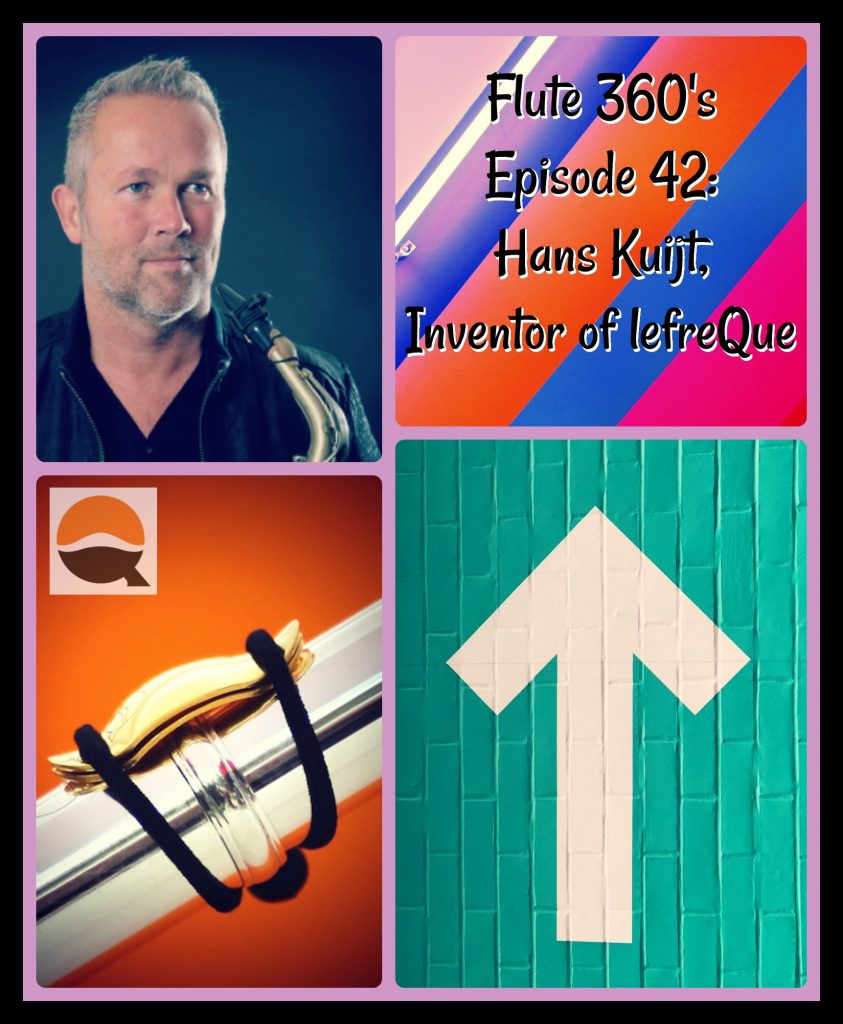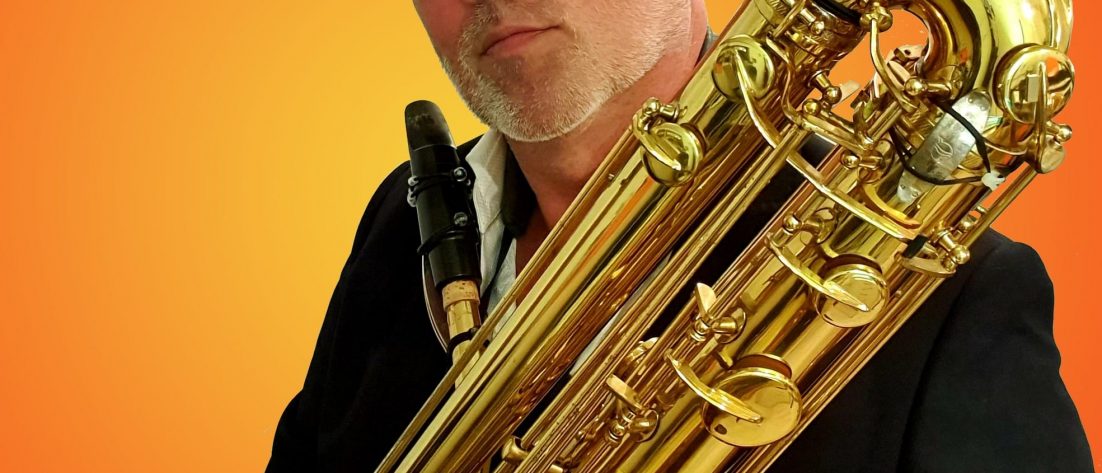Flute 360 | Episode 42: “Hans Kuijt, Inventor of lefreQue” (37:10)

In today’s episode, Heidi talks with Hans Kuijt who is a saxophonist, flutist, teacher, and inventor of lefreQue! Heidi and Hans talk about his process, obstacles along the way, and the product and what solutions it resolves. Check-out today’s episode for more details!
Episode 42 – Main Points:
- 1:29 – Welcome!
- 1:40 – Amsterdam, Netherlands
- 2:12 – Book: Hans Brinker by Mary Mapes Dodge
- 2:25 – Question: Give us your background, please.
- 2:35 – Hans gives us his musical background!
- 2:44 – Sir James Galway, flutist
- 4:22 – “My heart was in the music and that’s why I became a musician.” – Hans
- 5:11 – The beginnings of LefreQue!
- 5:17 – “I was always a teacher and looking for explanations to my students to explain what happens in a physical way.” – Hans
- 5:58 – Searching for the “why.”
- 6:44 – The idea of lefreQue came in 2008 and then in 2012 the first prototype came out.
- 7:35 – “It had to be a product for more instruments, not just for the saxophone.” – Hans
- 8:25 – “I did a lot of research in those four years [2008-2012].” – Hans
- 8:50 – “The only thing I can’t put it on is a didgeridoo!” – Hans
- 9:11 – Question: What obstacles did you face along the way?
- 9:17 – “If you have a good idea, and start a company, there are a lot of people who’d like to jump-in!” – Hans
- 11:51 – LefreQue’s Materials
- 15:04 – “I feel more connected to my instrument when I use LefreQue.” – Heidi
- 15:41 – Question & Answer
- 16:01 – “You have more problems on the bassoon compared to the flute.” – Hans
- 16:21 – Question: How did you come-up with the name, lefreQue?
- 16:25 – Hans’ Answer
- 18:32 – Sound Bridge
- 19:21 – Engineering
- 22:05 – Question: What resources did you use throughout your journey?
- 22:25 – “My mind is never quiet, it is always working.” – Hans
- 24:48 – “Cork is the slowest material on Earth – almost.” – Hans
- 25:53 – Heidi’s takeaway between Hans’ answer and Ho-Fan Lee’s response.
- 26:44 – Mark Dooly, Win-D-Fender
- 27:53 – Question: Do you have any advice or suggestions for the new inventor?
- 28:07 – “Look at yourself in the mirror, and promise yourself that you will never give-up!” – Hans
Picks:
Hans
Heidi
- Zanders’ Book, “The Art of Possibility”
- Stephen Covey’s Book, “7 Habits of Highly Effective People”
- Barbara Streisand’s Song, “People”
Episode 42 – Resources Mentioned:
- LefreQue’s Website
- Hans Kuijt’s Twitter
- LefreQue’s Twitter
- Hans Kuijt’s Instagram
- Carolyn Nussbaum’s Website – Purchase
- William S. Haynes Co. Flutes’ Instagram
- William S. Haynes Co. Flutes’ Twitter
- William S. Haynes Co. Flutes’ Facebook
- Heidi Kay Begay’s Website
LefreQue’s Upcoming 2019 Conferences:
Episode 42 – Sponsors:
- Gold Level: William S. Haynes Co. Website
- Silver Level: Contact Heidi for more details!
- Bronze Level: J&K Productions’ Website




Greetings Heidi, and thank you for your informative and entertaining podcasts, which I just discovered on Youtube. I plan to listen to all of them. As a physics professor with an interest in flute acoustics, and an amateur flute player, I would like to share some thoughts about Lefreque. I am afraid that the technical explanations that Has Kuijt gives for how the Lefreque works make no sense at all. Briefly, this is because wall vibrations in flutes are not the way that sound is transmitted between the different joints. Rather, it happens through vibrations of the air inside the flute tube. The mechanics of the wall plays only a small role, and the motions of a piece of metal outside the wall cannot be important at all. If tube vibrations were so important, the damping effects of the contact of our fingers on the outside of the flute tube would play a far larger role in sound production. The claims Hans makes to have studied the science and engineering of the Lefreque are plainly false, since he does not grasp the elements of the physics of flute sound production. The “spectral analysis” section on the Lefreque web site is pure pseudo-science, and none of the testimony that is constantly offered about the Lefreque provides evidence that it does anything at all. This is so because the tests are not blind, while we know from a hundred years of human behavior experiments in dozens of subfields of science that blind tests are absolutely essential. There is a strong parallel between the Lefreque phenomenon and the way that Ouija boards and other paraphernalia of the occult function. Musicians tend to trust their perceptions, and sometimes will go so far as to believe that they are immune to the unconscious biases that make blind testing essential, but of course this is not so. I have tried to make these points before in various web venues, but unfortunately I often wind up offending people. I hope you are not offended. My purpose is only to put a little doubt in your mind that things might not be what they seem. Now I will go listen to your interview of Gary Shocker, a real flute hero!
Hi John! I appreciate you listening to the podcast and I appreciate even more your insights! I think it’s great to start a conversation about such topics! This is wonderful for the flute community to be exposed to both sides of the coin. Thanks, again!
All my best, Heidi
P.S. – I hope you enjoy Gary’s interview! He’s a wonderful man and musician.